-
Content Count
2,449 -
Joined
-
Last visited
Posts posted by paulm
-
-
Hi
The Orange in the breast area indicate that he is split OB and the cheeks would say he is Split BB so i would say a BF/OBBB.
Paul.
-
Hi Andy
We've all have this at one stage or another myself included, I'm not sure why it happens but I've had it where my worst preforming hen one year turns out to be one of the best the following year. The only real way I have found to cope with this and other problems, is by having a lot of pairs down on eggs at the same time, this allows me somewhere to foster the eggs or chicks from problem pairs to.
Paul.
-
Hi
One of the best things for eye infections is good old simple Salt water, just put a spoon of salt into cooled boiled water make sure it not to strong and bath the eye daily till it improves.
Paul.
-
Hi Baz
well done looking good.
Paul.
-
Hi Richard
If you look at the tail of the bottom cock bird you can see the level of dilution in it, this is typical of the dominant dilute mutation to which cream belongs where as the tail in the photo of your hen is very dark as seen in fawns.
Paul.
-
Hello and welcome to the forum.
Paul.
-
Hello and welcome to the forum.
Paul.
-
Hello and welcome to the forum.
Paul.
-
Hi
Having only seen the photo's of the hen I would 100% say Fawn, if you look a the photo below you can see they are similar in colour, you get a great deal of variation in colour with fawn and get light coloured birds such as the hen below.
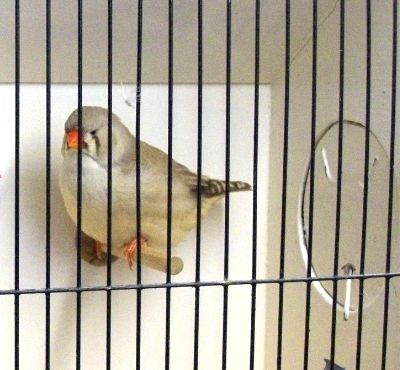
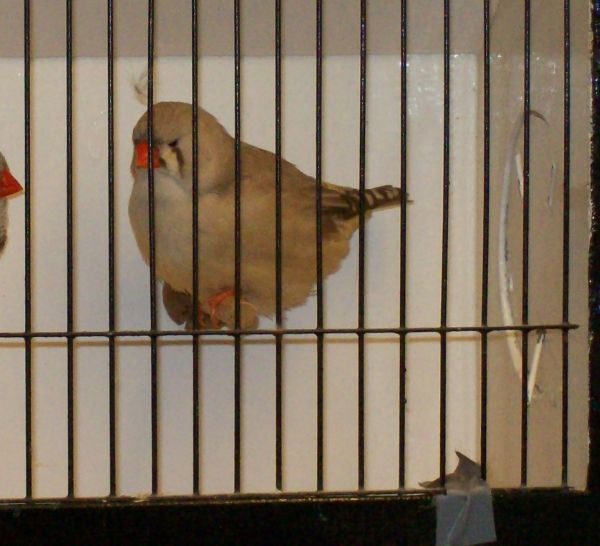
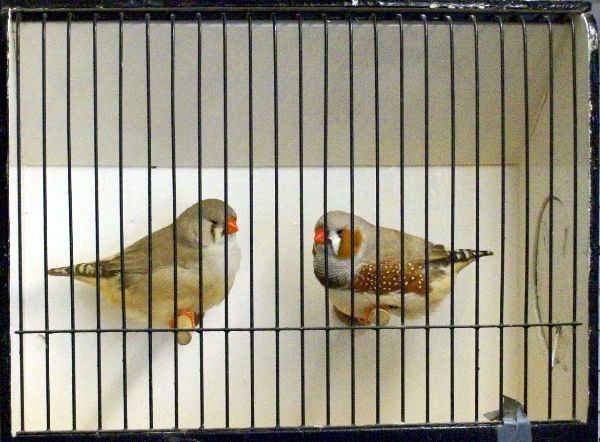
And below are some creams not owned or bred by myself but you can see what I mean by the dilution of the mutation affecting the dark brown markings, this happens to differing degree's depending on the level of dilution to the bird.
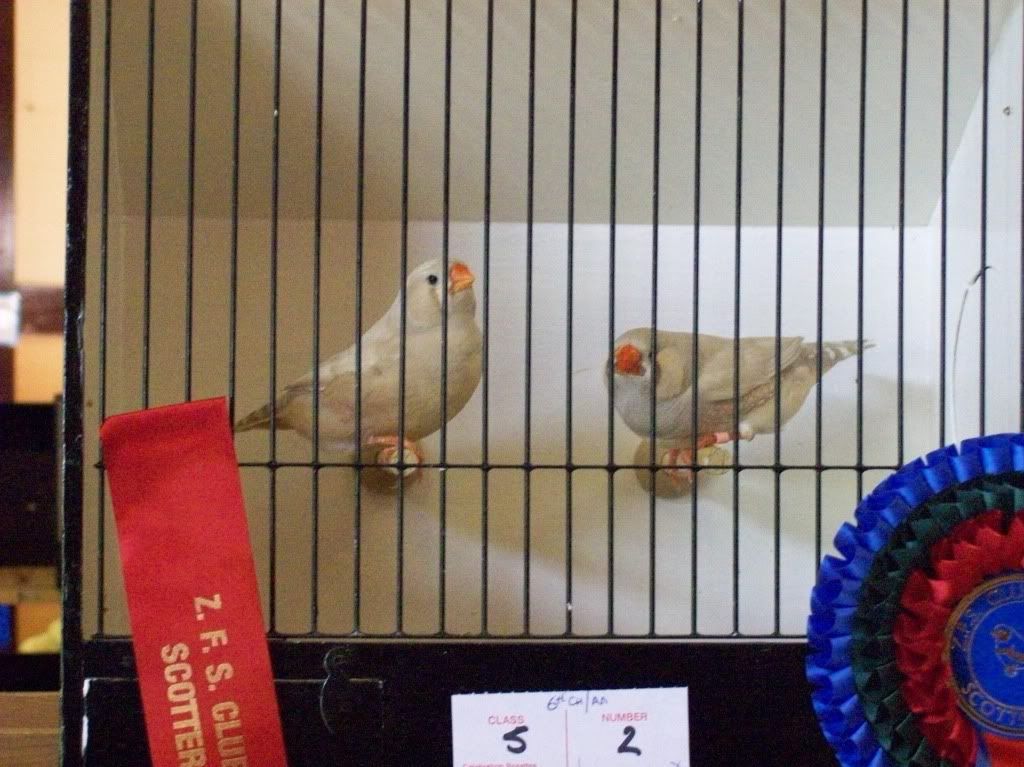
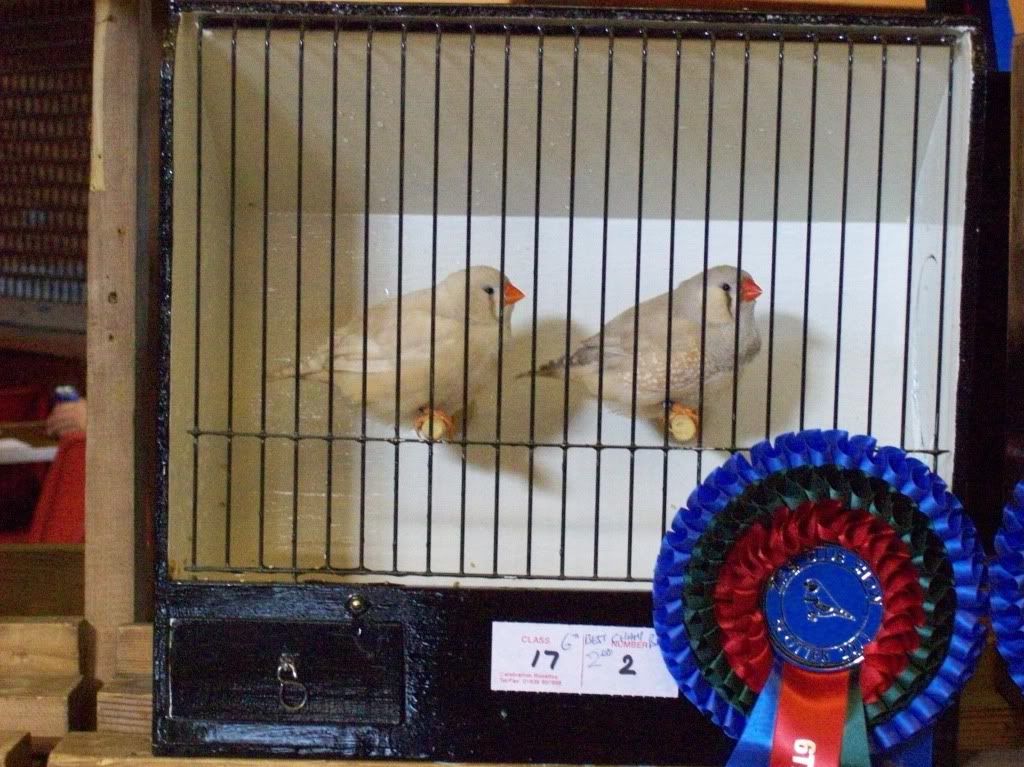
-
Hi
I Like to watch the chicks and make sure they are feeding themselves sufficiently and not just picking up seeds and dropping them, you can leave them as long as the parents are willing to feed them if you wish but with some pairs will try to chase off their chicks after a while, but your best to remove them once they are feeding themselves ok.
Paul.
-
Hi
As the guys have said the hen in the photos seems to be a Fawn hen and not a cream, the give away sign is the darkness of her markings which should be Diluted by the Cream dilute mutation and not a vivid dark Brown colour as in this hen.
Paul.
-
 1
1
-
-
Hi
I would leave the hen in charge if it was me and the cock bird out of sight.
-
Happy Birthday Dave mate

Paul.
-
Nice One Trev.
Paul.
-
Hi
Sounds like a avian vet is needed it could be a yeast infection but a vet would have a better idea.
Paul.
-
Hi
A Zebra finch cock will mate his hen multiple time to ensure his genes are passed on, but it is know that a zebra finch hen can retain Sperm from previous mating's, this can sometime be an issue when they are captive bred as if the breeder switches the cock to quickly with out a gap which can lead to offspring being produced from the pervious cock bird, this can be impossible to detect if the cocks are of the same colour type.
Paul.
-
Hi
If the its the one with the pigeon picture on it I believe you can know use that one smaller cage birds or so the dosage instruction say on the GJtitmuss site.
I have to say £100 to get your birds look at is daylight robbery it should cost next to nothing to have them looked at was that an avian vet?
Paul.
-
Hello and welcome to the forum.
Paul.
-
I would not replace the cock until either the hen stops sitting, or the eggs when sat for seven or more day look clear, or the hen has hatch the eggs and the resulting chicks are feeding themselves.
-
Hello and welcome to the forum.
Paul.
-
I Wouldn't put him back as the hen will either end up going for him again or she may abandon her eggs, if your lucky she may sit them on her own and they will be fertile but the odds are stacked against it.
Paul.
-
Happy birthday Dan.
Paul.
-
Hi
Vets tend to be all different prices to be honest, but you need to see an avian vet as most none avian vets don't have the same knowledge level as a avian vet who is a bird specialist, it would be very strange for a hen to pluck her own vent till she bleeds I have seen birds moulting who get what we call a blood feather which leaded to bleeding and birds who bleed from the tail area whilst moulting I had one a few weeks ago who is now fine.
If it were my bird I would treat it for parasites as this could be another cause if it is in fact not the cock birds doing and treatment can be brought from most pet shops, a treatment such as Harka Mectin which is a drop place onto bare skin much like you do with a dog or cat for fleas is what I would recommend.
Paul.
-
 1
1
-
-
Hi
As I said above she should be place into a cage of her own as it could be the cock who has done this and she is picking the area he has plucked its hard to say without seeing their behaviour, the other thing you can do it treat the bird with Harka Mectin in case of parasites and you need to see an avian vet.
The hen in the top photo is a lightback coloured bird and yours looks to be a Chestnut flanked white.
Paul.
-
 1
1
-


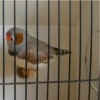
Young Cfw Just Made The Sticks
in Chestnut Flanked White
Posted · Report reply
Hi Gary
Looking good there mate